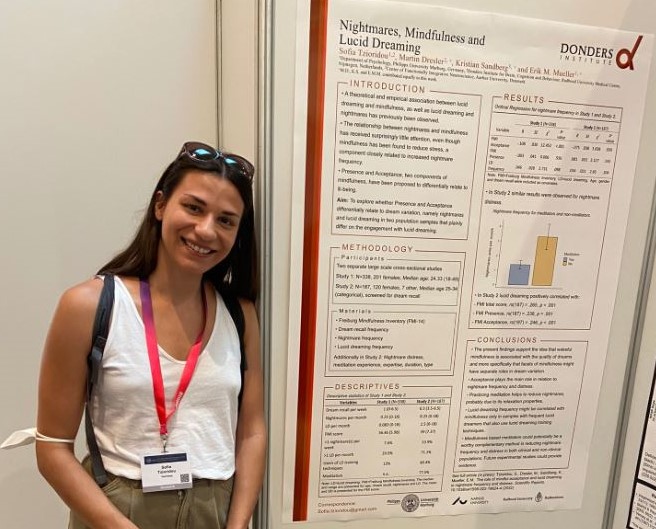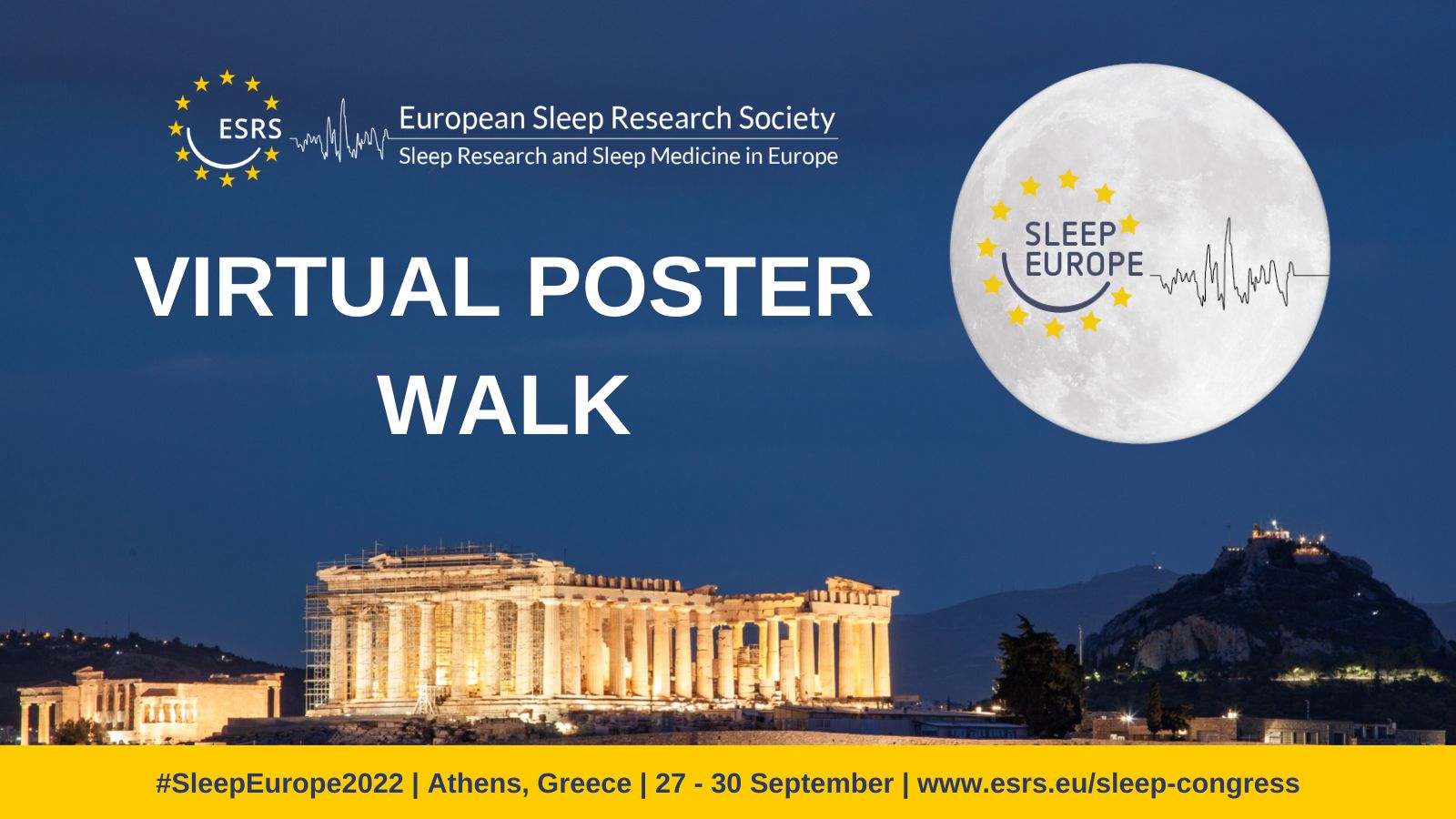Sleep Europe 2022 Virtual Poster Walk

Ann-Sophie Loock
PhD student & psychologist at the Centre for Chronobiology, Psychiatric Hospital of the University of Basel, Switzerland
Hello to everyone from the Sleep Europe 2022 poster sessions on Wednesday! Even writing a virtual poster walk was difficult due to the sheer volume of interested individuals interacting with poster presenters – clearly demonstrating the great accomplishments of the many early career and established researchers on show. During the lunchtime session one could hardly even speak of walking, it was more like a shuffling. Nevertheless, I squeezed into the crowd to find only interesting research on display and to have only inspiring discussions with knowledgeable peers covering a wide range of sleep-related topics.
After two conference days with their high cognitive workload and restricted sleep, the topic that first captured my attention was dreaming. Valentina Elce presented a poster titled “The matter dreams are made of: A dictionary-based analysis and categorization of dream reports”. In this project, the aim is to detangle the content of dreams, eventually establishing a dreambase – a databank on objective criteria to describe dream experiences. I learned that the content of dreams can be grouped into several clusters, independent of the individual dreamer. These are, however, still preliminary results – I am sure we all look forward to hearing about the final results of this stimulating project.

Right next to Valentina, I found Sofia Tzioridou with the poster “Nightmares, Mindfulness and Lucid Dreaming”. Are you suffering from nightmares from time to time? If so, you should reach out to Sofia. She might have an idea how to help you. Mindfulness is such a popular term that I have always been somewhat wary about. Today, however, I discovered that mindfulness is not just mindfulness as we have seen advertised all over the internet. Rather, there are several distinct components to this broad term that can be investigated individually. Check out the e-poster to find out which component plays the main role in relation to nightmare frequency and distress. Sofia also highlighted that those of us who are practicing meditation might benefit from similar effects that also reduce nightmares.
So yes, I guess we should all be mindful and consider meditation. What we should also be doing is being active. The importance of sleep in every aspect of our lives cannot be denied. Sleep is increasingly stressed as a means to enhance our health and performance. This has even been recognized for professional athletes who do not only get mental coaching but are also encouraged to sleep at particular times during the night as well as to have naps during the day. However, walking past Felix Willmer’s poster “Napping improves wakefulness in athletes but has less influence on endurance performance – a randomized crossover study”, I learned that napping does not improve endurance performance. The good news? Just don’t get into endurance sports – we might still be able to profit from naps for our strength training!
Weaving through the rows of posters, I found many more interesting ones, but I cannot describe them all here. Either check out the online versions of the Wednesday posters (there’s really interesting research on memory, sleep and neurological disorders, automated analysis of sleep staging, ….) or go to today’s poster sessions from 12:15-13:15 or 17:30-19:00. You’ll be overwhelmed!



